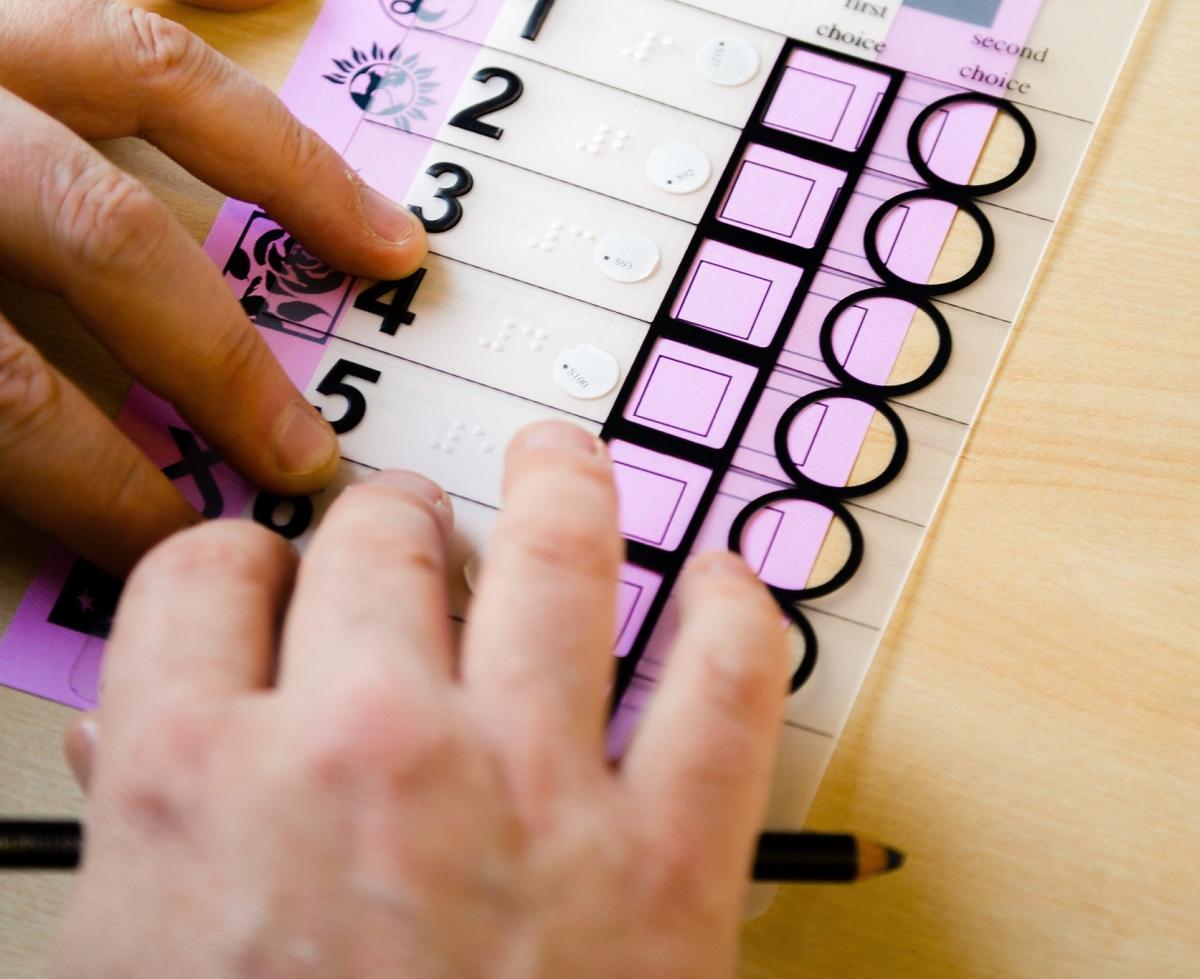MSPs in the Scottish Parliament will get a chance to find out what it's like trying to vote in secret at the ballot box if you're blind or partially sighted.
They will be invited to cast their ballot in a mocked-up polling booth in the Parliament building in Edinburgh wearing special spectacles that simulate different sight loss conditions.
To help them, they will have use of a Tactile Voting Device, a thin transparent plastic template that fits over the ballot paper, available on request in polling stations.
The event - organised by national sight loss charity RNIB Scotland, and sponsored by Greenock and Inverclyde MSP Stuart McMillan - aims to underline just how difficult it can still be to vote in private and with confidence if you have a visual impairment.
Currently, around 178,000 people are living in Scotland with a significant degree of sight loss.
A UK-wide survey by RNIB last year found that just 19 per cent of blind voters, and 44 per cent of partially sighted voters, said they felt they could vote independently and in secret under the current voting system. Nine out of ten (91 per cent) of blind people and 54 per cent of partially sighted people said they had to get another person to help them to vote.
The existing voting arrangements in the UK were declared unlawful by the High Court in 2019. In his judgement, Mr Justice Swift said: “Enabling a blind voter to mark ballot papers without being able to know which candidate they are voting for is a parody of the electoral process”.
James Adams, director of RNIB Scotland, said: "Voting independently and confidentially is one of the basic rights of our democracy. But we know that blind and partially sighted people still experience problems doing so. One person, for instance, told us the ballot paper for his Scottish Parliament regional list had 16 entries and was too long for the standard 12-box Tactile Voting Device template to cover.
"RNIB Scotland has been working with the Scottish Government Elections Team and the Electoral Commission in Scotland to explore alternative voting methods and how polling stations can be made better."
Terry Robinson from Glasgow who is registered blind said: "Having been theoretically enfranchised since 1968 when I was 18 years old, I've yet to realise my democratic right to cast a totally independent vote. At worst, I've had to ask a stranger to mark the paper for me. By default, I get my vision impaired partner to use what sight she has to mark the paper.
"In between these options, I've been offered a template and been told the order of candidates on the paper. So, whilst I can mark this paper, I still have no guarantee that the paper has been put into the template the right way up, or that the correct order of candidates has been explained to me.
"At the age of 71, I'm still looking forward to the day, which should have arrived some time ago, when I can cast a totally independent vote - a basic right which is afforded to the vast majority of others."

The tactile voting device in use
For further information, please contact Ian Brown at RNIB Scotland.

